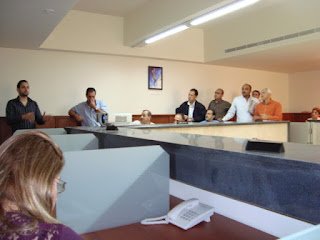Beirut — Put Expat Finances to the Test
When you’re planning to move abroad, the capital city is the first place you are likely to consider. Due to the number of opportunities they offer, this is especially the case if work is the reason for your move.
If you’re planning to move to Lebanon, however, you should find a bank in Lebanon that will provide you with good personal banking services, as you may require expert advice on how to manage your money while you’re out there. A report has found that Beirut has moved up nine places to become the 67th most expensive city in the world to live in for expats.
The main reason is the cost of housing. Expats normally want apartments of 60 to 80 squared meters, which rarely cost less than $1,000 per month to rent, but the supply of rentable apartments in Beirut is limited. Rent continues to rise as Lebanese landowners renovate apartments or only build luxury five-star apartments. The apartments available tend to be large, expensive and aimed at wealthy people.
The price of food in Beirut is also much higher than in other parts of Lebanon. Groceries, for instance, are as much as three times cheaper outside of the capital.
Another problem is the poor public transportation system in Beirut, which has increased the need to use private transport. However, the cost of petrol is high and the rationing of electricity isn’t helping, to the extent that some people and businesses are hiring private generators to cover their needs.
Unfortunately, inflation is on the rise in Lebanon, having climbed in the first 10 months of 2012. According to the Consumer Price Index (CPI), prices increased by 11.1% between October 2011 and October 2012. The cost of food and drinks rose by 1.2% in October.
The good news is that not all costs increased. Important costs such as fuel, electricity (which are among the highest in the world in Lebanon) and water fell — if only slightly —by 0.1% and transportation ones did so by 1.3%.
Of course, problems with inflation make life as difficult for the Lebanese as for the expats. The speed of these increases in inflation means Lebanon’s own people are saving less and less — if at all. A Lebanese Ministry of Finance survey found that more than 55% of the Lebanese population can’t afford to save money and that more than 63% have problems providing for food and necessities.
In times of economic strife, households normally budget. The survey found, however, that 50% of Lebanon’s citizens don’t budget their household income or expenditures. Fifty per cent had no exact knowledge of how much they spend each week. Rather more, over 70% didn’t know exactly how much their weekly income was.
So if you’re heading to Lebanon, and in particular if you’re heading to Beirut, do some sound financial planning before you go there. Things get hectic in the run-up to a move, of course, so you should also consult one of the banks in Beirut, like HSBC, for financial advice too.



